by Cornelia Reiher
As the research workshop „Japanese Cuisine in Berlin“ only takes place in the summer semester and is aimed at Master’s students, I usually offer a course on food and nutrition in Japan for BA students in the winter semester. This course mainly deals with food, agriculture and nutrition in Japan itself, but also includes texts on the globalization of Japanese cuisine. One focus of this semester’s course was on food education and regional cuisine. I therefore invited two colleagues from Japan and the USA to make miso and obento with the students.
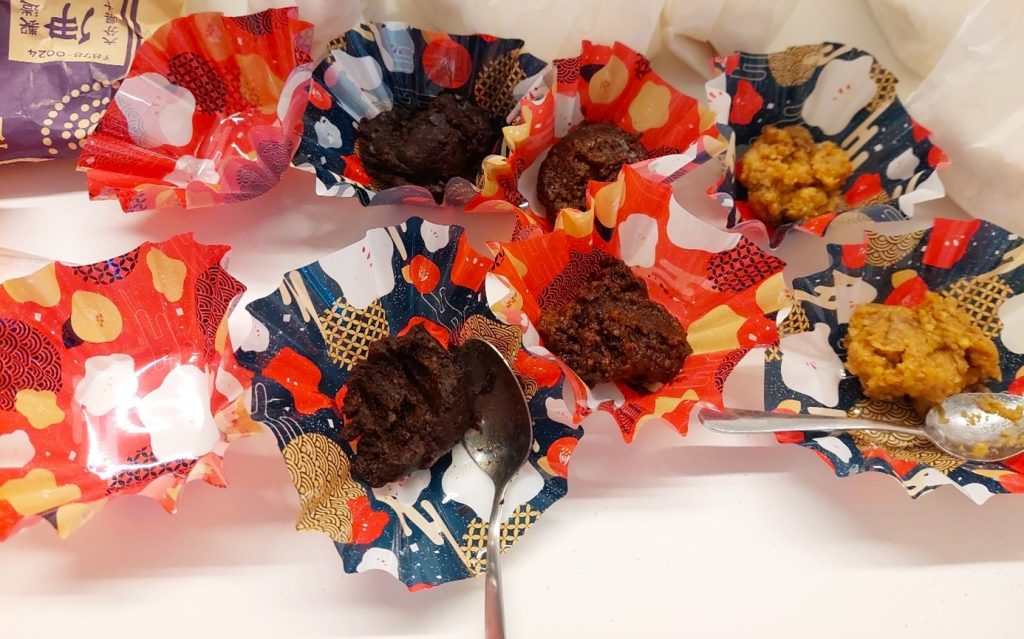
Copyright © Cornelia Reiher 2023
In December 2023, Takako Horita from Oita Prefecture visited our course. She is a nutritionist and has been working for a local government for many years. Her tasks include offering cooking classes, developing healthy eating plans for specific population groups and developing concepts for food tourism. In particular, she has dedicated herself to preserving traditional food practices and has documented, for example, the production of miso with older women in the region. They have also published a recipe book. Ms. Horita also visits schools and kindergartens to make miso together with children.
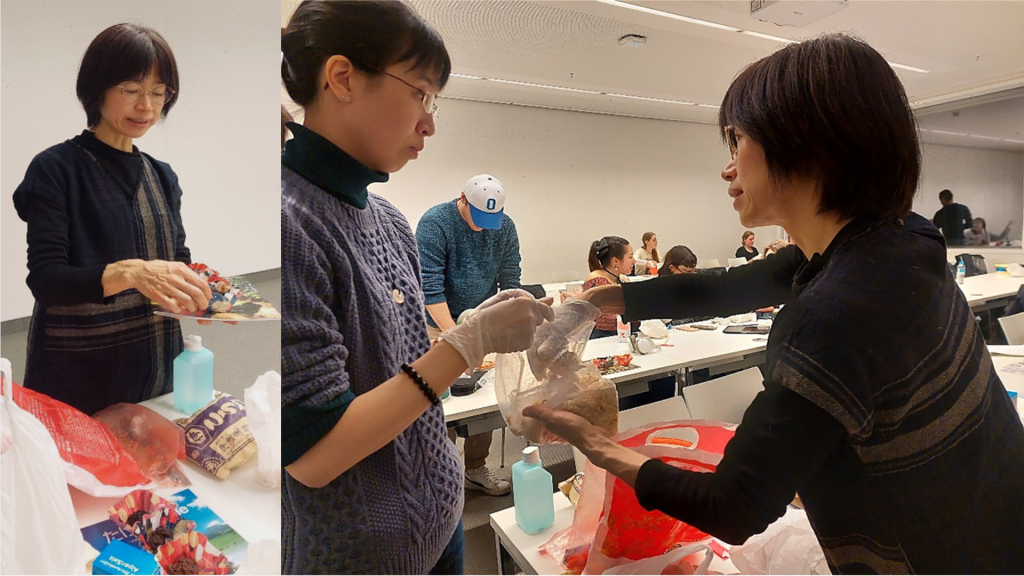
Copyright © Cornelia Reiher 2023
The culinary infrastructure for Japanese cuisine in Berlin described in my last blog post played an important role in the preparations for the workshop. Ms. Horita asked the students to soak, cook and bring soybeans before the workshop. Before giving the students this task, I visited numerous Asian and conventional supermarkets to find suitable soybeans. It turned out that, although soybeans were available, the koji kin needed to make koji or the ready-made koji itself is very expensive in Berlin. Ms. Horita therefore brought koji from Japan.
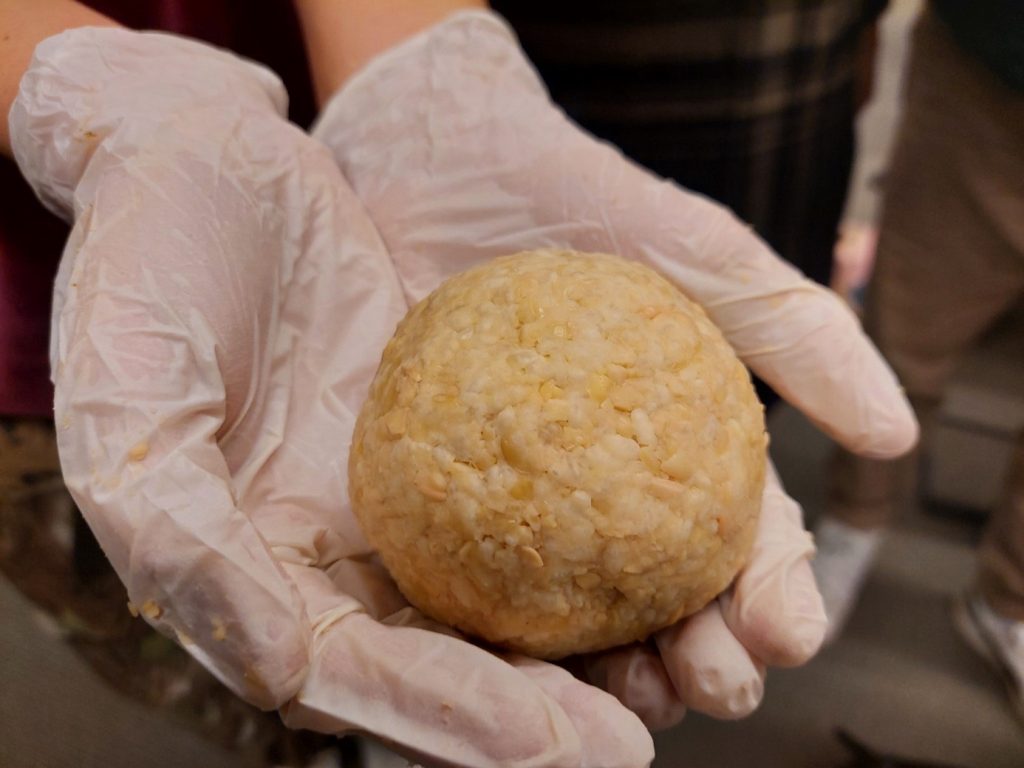
Copyright © Cornelia Reiher 2023
The workshop itself was a lot of fun for the students, even though they won’t be able to taste their own miso for a few months. After everyone had made a miso ball of a satisfactory consistency to take home, we ate miso soup together, which Ms. Horita prepared from misodama she had made herself. She had also brought miso of different ages for the students to taste.
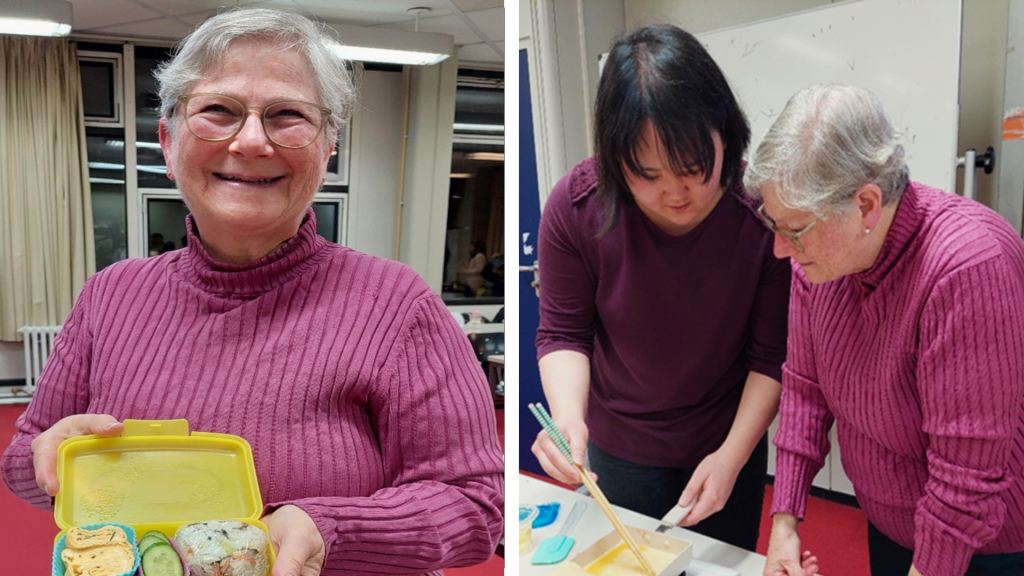
Copyright © Cornelia Reiher 2024
After ending 2023 with a miso workshop, we started the new year with an obento workshop. Debra Samuels, food journalist, cookbook author and food educator from Boston, who had already cooked with us online in the Corona Lockdown 2021, visited us at the FU Berlin to give the students insights into the world of obento and to prepare their own obento with them.
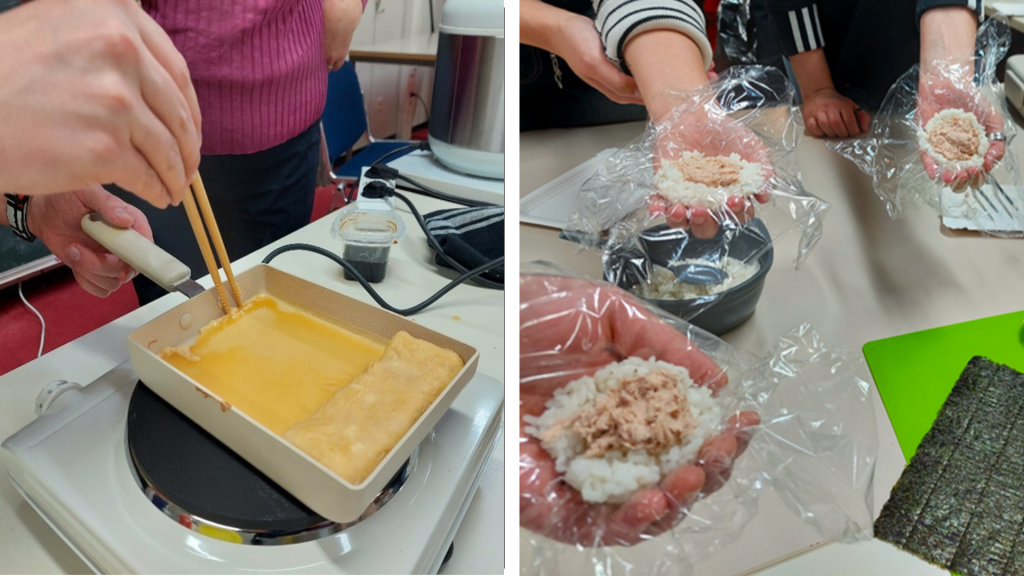
Copyright © Cornelia Reiher 2024
Since we had also talked about the connection between nutrition education and gender in the course, the topic of obento lent itself to talking about the role of mothers, their daily performance of preparing an acceptable obento and social practices of inclusion and exclusion in Japanese schools. It was insightful for the students to make their own obento. The many individual steps required to create an obento that is considered appropriate and sufficiently kawaii impressed the students greatly and helped them to better understand the burden of Japanese mothers.
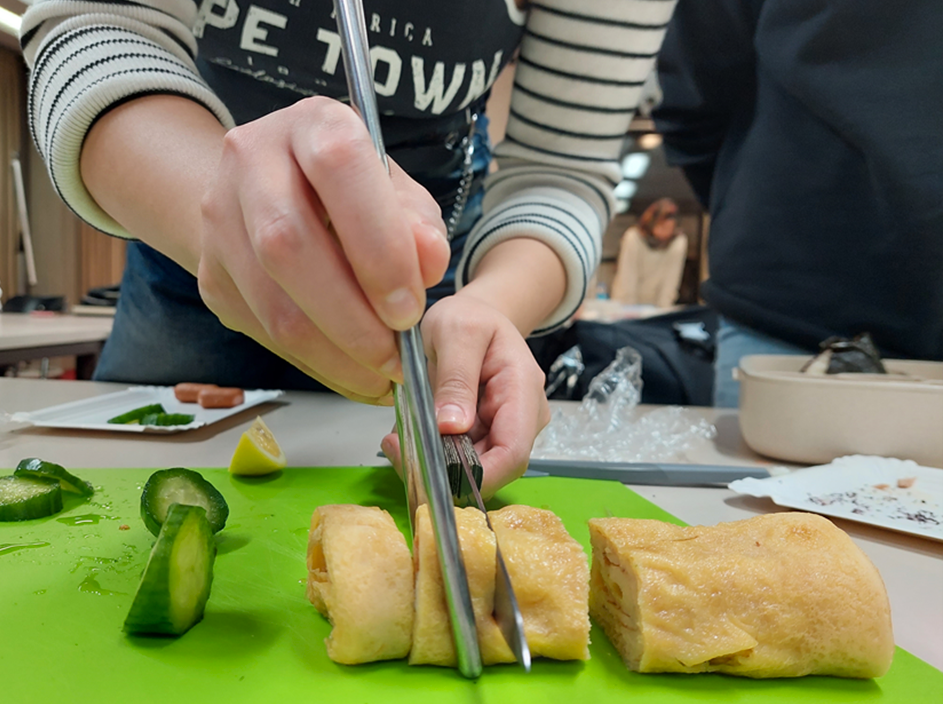
Copyright © Cornelia Reiher 2024
Debra asked the students to make onigiri, tamagoyaki, octopus sausages, tsukemono made from cucumber and a tomato heart. Despite the somewhat limited equipment in the seminar room, fabulous obento were created, all of which were different because the students had made an effort to give their obento an individual touch. Debra had bought all the ingredients in Berlin, so this workshop also showed that the culinary infrastructure in Berlin makes it possible to prepare Japanese dishes here without any problems.
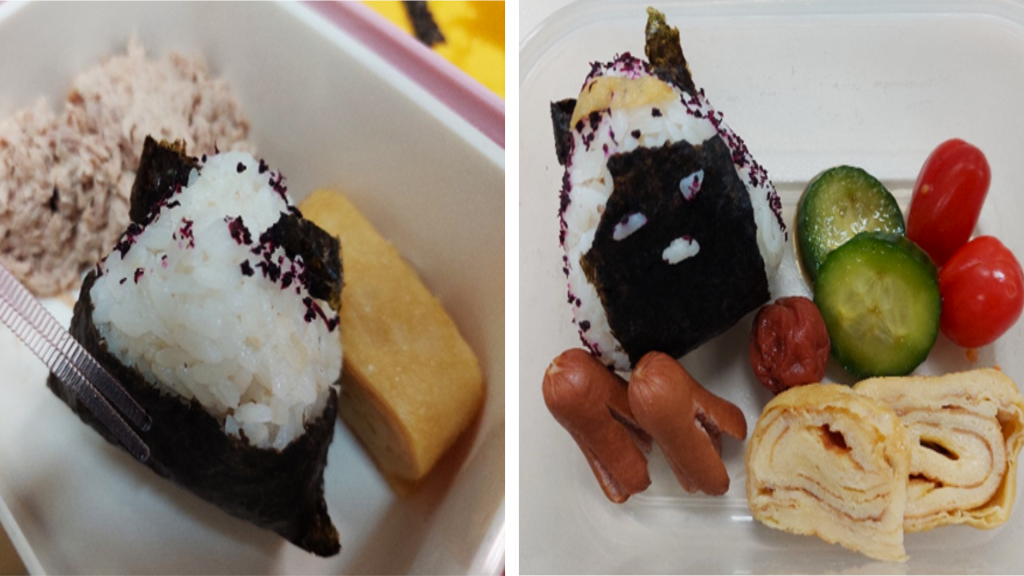
Copyright © Cornelia Reiher 2024
Both workshops were not only a welcome change from the otherwise text-based lessons, but also gave the students exciting insights into food practices in Japan and their globalization. I would like to thank Takako Horita and Debra Samuels very much for making these experiences possible.
